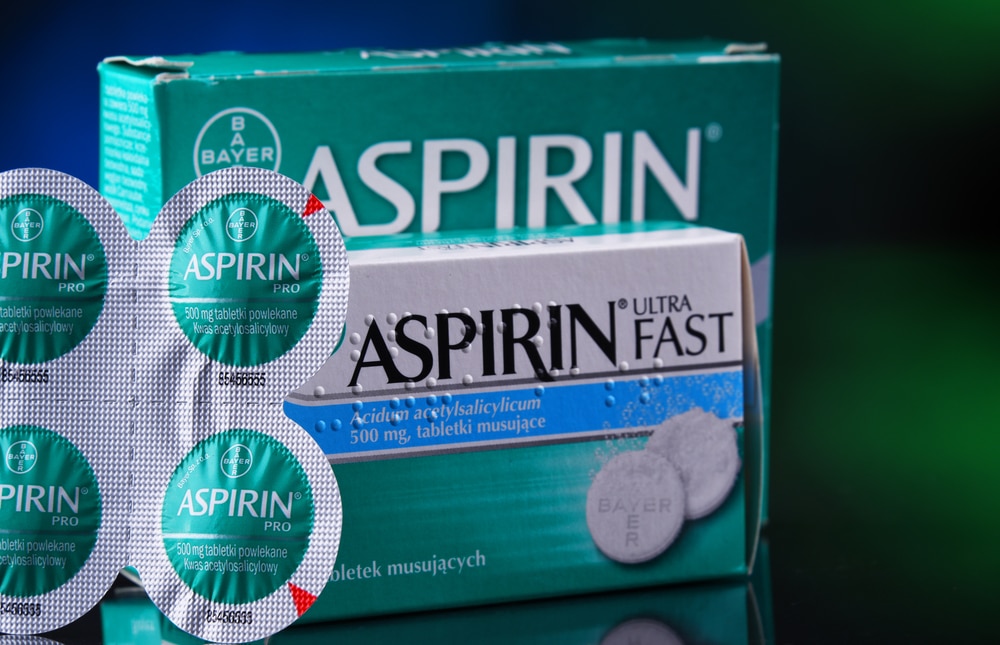Everybody gets sick from time to time, whether it’s the common cold, an upset stomach from something you ate, allergies, or any other ailment. Grocery stores and pharmacies have shelves stocked with all sorts of medications to help people with their health needs.
Unfortunately, some medications sold to consumers carry a potential for abuse. There are many reasons a person would abuse over-the-counter (OTC) medication. Whatever the reason, finding help from a certified addiction treatment center is the best course of action. A treatment center like Vogue Recovery Center can help you overcome over-the-counter medication abuse.
What Are Over-the-Counter Drugs?
Over-the-counter (OTC) drugs are medications that don’t need a prescriptionfrom a healthcare professional. They are considered safe and effective for self-use when taken as directed, and they’re accessible to the public in pharmacies, grocery stores, and convenience stores, and on the Internet.
Here are how OTC drugs are different from prescription drugs:
- No prescription needed: Unlike prescription medications, OTC drugs do not need a doctor’s prescription. People can buy them from the store or online.
- Approved for self-use: OTC drugs are deemed safe for consumers to use on their own without the need for medical supervision. They’re intended to treat common, straightforward health conditions, such as headaches, allergies, heartburn, cold and flu symptoms, and minor aches and pains.
- Lower risk profile: OTC drugs are often considered safe when used as directed.
- Standardized labeling: OTC drugs have clear and standardized labeling. This provides consumers with essential information about proper dosages, potential side effects, and contraindications.
- Limited dosages: OTC drugs often come in lower dosages than prescription medications.
- Wider availability: OTC drugs are available to the public. You don’t need to visit a doctor to get them.
Some common over-the-counter medicines include:
- Pain relievers like acetaminophen or ibuprofen
- Antihistamines like loratadine or diphenhydramine
- Cough medicines
- Cold medicines
- Antacids
- Laxatives
- Topical medications for minor skin conditions

OTC Highs: What Over-the-Counter Drugs Are Abused?
Some over-the-counter drugs can be abused, leading to potential health risks and negative effects. Here are a few examples:
Cough and Cold Medications
OTC cough and cold medications that contain dextromethorphan (DXM) are often abused. They can have hallucinogenic and dissociative effects when taken in large quantities. DXM is an active ingredient found in many cough syrups, lozenges, and gel caps. When taken in excessive amounts, it can cause:
- Euphoria
- Hallucinations
- Impaired motor function
- Disorientation
This practice is often referred to as “robotripping” or “skittling.”
Pseudoephedrine
Pseudoephedrine is a decongestant found in OTC cold and allergy medications. It can be used to produce methamphetamine, an illegal and addictive stimulant drug.
Antihistamines
Certain antihistamines can cause sedation and drowsiness when taken in high doses. An OTC high on antihistamines can have hypnotic effects. These drugs are also sometimes used to enhance the effects of other substances.
Laxatives or Diet Pills
Some people abuse OTC laxatives or diet pills to control their weight. Excessive or prolonged use of laxatives can lead to:
- Electrolyte imbalances
- Dehydration
- Other serious health complications
Pain Relievers
Pain relievers like acetaminophen and ibuprofen can be misused for chronic pain management. This can damage your liver.
Motion Sickness Medications
Some motion sickness medications can be abused for their sedative effects.
Who Chases OTC Highs?
Anyone can fall victim to over-the-counter drug abuse. People from various backgrounds and different agescan be at risk of misusing or abusing OTC medications. OTC drug abuse can have serious health consequences, including organ damage, addiction, and even overdose. There are a few risk factors that may make someone more likely to abuse OTCs than others.
Some risk factors for over-the-counter drug abuse include:
- Teenagers: Young people are more likely to abuse OTCs as they are not old enough to buy substances like alcohol, tobacco, or marijuana in states where it’s legal. Teens abuse drugs for many of the same reasons adults do, like coping with stress, anxiety, or trauma.
- Those with a history of substance abuse: If you abuse substances like alcohol or prescription drugs, you may be at a higher risk for OTC medication abuse.
- Those with eating disorders: Some people use laxatives or weight control supplements as forms of weight control.
- Those with underlying mental health issues: People who struggle with mental health are often at a higher risk for substance abuse.
- Those without access: Some may turn to over-the-counter drugs when they are unable to get other substances.

When Do I Need Treatment for OTC Abuse?
Understanding when you need treatment for over-the-counter medication abuse can be challenging. OTCs are legal and available at stores all over. When does taking these medications qualify as abuse? Here are a few situations which could show you need help for OTC abuse:
- Excessive dosage: Taking OTC medications in higher doses than recommended on the label is considered abuse. This can lead to potential overdose, adverse effects, and health risks.
- Frequent use: Using OTC medications more often than directed or for an extended period can be a sign of abuse. OTC drugs are often intended for short-term relief of minor symptoms. Prolonged use without medical supervision can be harmful.
- Combining with other substances: Abusing OTC drugs by combining them with other substances can increase the risk of adverse effects.
- Using OTC drugs for recreational purposes: Using these medications to get an OTC high is considered drug abuse.
- Ignoring health warnings: Disregarding warnings on the medication label is a sign of abuse.
- Chronic reliance: Using OTC medications to manage chronic health conditions may be a problem. It’s better to seek professional medical treatment.
- Compulsive use: Feeling compelled to use OTC medications even when there is no medical need or symptom to treat can be a sign of abuse.
Addiction Treatment at Vogue Recovery Center
Over-the-counter drugs may seem harmless, but they can lead to addiction. Vogue Recovery Center is a great option for those struggling with substance use disorders. Physical dependence on drugs and alcohol can threaten your health and well-being. Our alcohol and drug rehab programs involve evidence-based behavioral therapy and holistic practices. This allows for an integrated approach to recovery.
The unique levels of care offered at Vogue Recovery Center include:
- Medical detox: Detox is an essential part of the recovery process. It involves ridding your body of all substances. Vogue Recovery Center offers medically supervised detox to help manage withdrawal symptoms. Our goal is to make you as comfortable as possible during detox from OTC drugs.
- Residential addiction treatment: Inpatient care involves spending 24/7 at our recovery center undergoing treatment. Our clinicians guide you through behavioral and holistic therapy programs designed to heal your body and mind.
- Partial hospitalization program (PHP): A PHP is an outpatient setting with daily treatment from our behavioral health therapists. You live at home or in a sober living facility while in PHP treatment. The goal is to build on the tools and skills you learned in residential care so you can transition back to normal life without the threat of abusing over-the-counter medications.
- Intensive outpatient program (IOP): An IOP includes 9 to 15 hours of treatment per week at Vogue Recovery Center. It can simplify the transition between inpatient and outpatient recovery. The goal is to use the tools you learned in recovery to aid in sobriety after finishing rehab.
- Outpatient rehab: An outpatient treatment program can help with abuse of OTC medicine. It involves attending treatment once or twice per week at Vogue Recovery Center. This stage of the recovery process also involves building a support network of peers and therapists you can rely on for continuing care.
Vogue Recovery Center provides quality addiction recovery to those in need, whether your drug of choice is illegal or found on a grocery store shelf. Our programs are individualized and offer a unique path to recovery for all. If you’re wondering how to pay for rehab, contact our admissions team today for an insurance verification. You can trust the skilled clinicians with decades of combined experience at Vogue Recovery Center with your recovery.
References

Evan Gove

Latest posts by Evan Gove ( see all)
- How Long Does Heroin Stay in Your System - June 4, 2024
- How Long Does It Take to Rewire Your Brain from Addiction? - March 4, 2024


 Medically Reviewed by
Medically Reviewed by